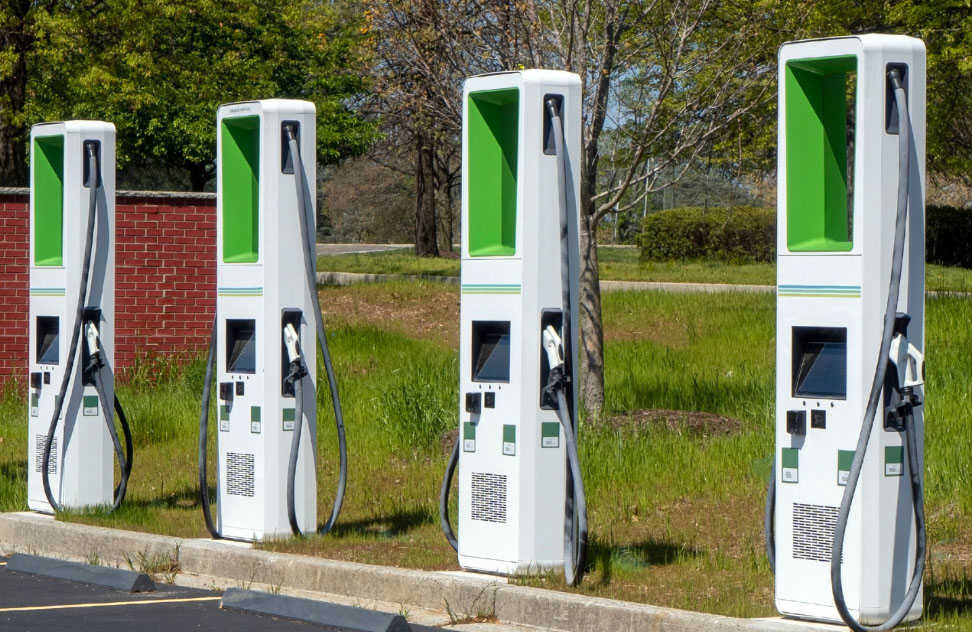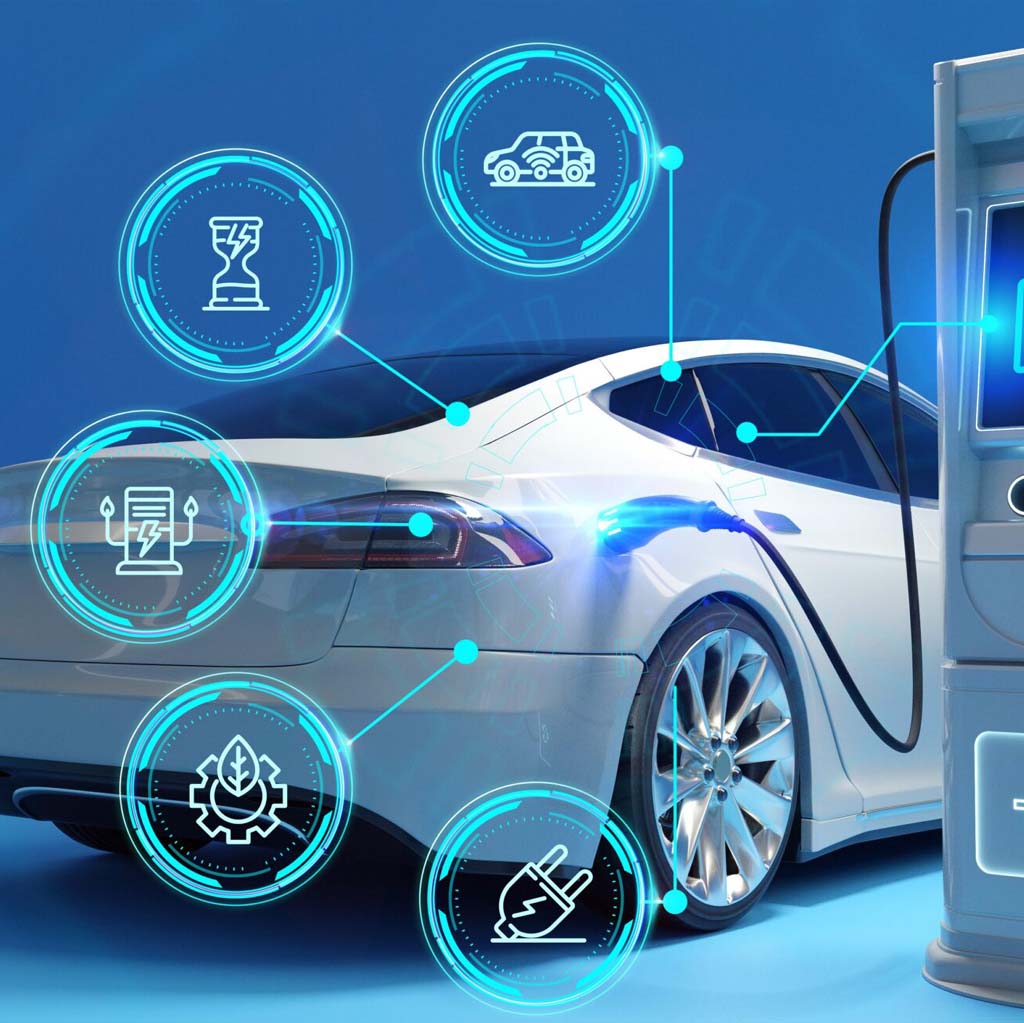Research & Development in E-Mobility and EV Charging
"Driving towards a sustainable future."Introduction:
At SEVCC, our commitment to pioneering the future of E-Mobility and EV Charging goes beyond offering services. Our Research and Development (R&D) division relentlessly pushes the boundaries of technology, strategy, and innovation, ensuring we remain at the forefront of the industry. Dive deep into our areas of expertise:


Artificial Intelligence and Machine Learning in E-Mobility
Empowering Smart Mobility with Cutting-Edge AI
- Predictive Maintenance: Harnessing AI to predict when charging stations need maintenance, ensuring minimal downtimes and peak efficiency.
- User Behavior Analysis: Machine Learning algorithms analyze charging patterns, providing insights for optimizing station placements and operations.
- Energy Consumption Optimization: AI-driven systems manage energy distribution during peak times, ensuring efficient use of resources.
Master Plans for Site Development
Blueprints for the Future of Charging Infrastructure
- Geo-Strategic Placement: Using advanced analytics to determine optimal locations for charging stations based on various factors like user density and grid capacity.
- Environmental Assessments: Evaluating potential environmental impacts and ensuring all developments are eco-friendly.
- Infrastructure Collaboration: Working alongside city planners and local governments to integrate seamlessly into existing infrastructures.


Planning and Realizing Battery Manufacturing
Crafting the Heart of E-Mobility
- State-of-the-Art Facilities: Designing and setting up manufacturing units equipped with the latest technologies.
- Quality Assurance: Implementing rigorous testing protocols to ensure each battery meets global standards.
- Sustainability: Prioritizing eco-friendly materials and processes, minimizing environmental impact.
Planning Electric-Vehicle Integration
Seamless Merging of EVs into Urban Landscapes
- Public Transport Electrification: Strategies for transitioning city buses, trams, and other public transport to electric.
- EV-Ready Infrastructure: Ensuring cities have the necessary amenities, from charging ports in public parking areas to fast-charging hubs.
- Policy Collaboration: Working with governments to draft policies favorable for EV adoption.


Planning and Realizing: Supply Chain & Intralogistics
Streamlining the Backbone of E-Mobility Operations
- Optimized Supply Chains: Ensuring timely delivery of components, from batteries to charging station parts.
- Digital Tracking: Implementing IoT and blockchain for real-time tracking of goods and ensuring transparency.
- Strategic Partnerships: Collaborating with logistics leaders for efficient transportation and delivery.
Development of a Battery-Freight Plan
Safe and Efficient Transportation of Power Units
- Safety Protocols: Establishing guidelines for transporting batteries, considering their sensitive nature.
- Specialized Packaging: Designing packaging that protects batteries from physical harm and environmental factors.
- Regulatory Compliance: Ensuring all transportation adheres to international and local regulations.


Development of Emergency Plan Handling Batteries
Preparedness for the Unexpected
- Emergency Response Teams: Training specialized teams to handle battery-related emergencies, from leaks to fires.
- Public Awareness: Educating the public on battery safety and first-response actions.
- Collaboration with Fire Departments: Ensuring local fire departments are equipped and trained to handle battery-related incidents.
Supplier Development, Supplier Rating, and Maturity-Level Assurance
Building Strong, Reliable Partnerships
- Continuous Audits: Regularly evaluating suppliers to ensure they meet our standards in quality, sustainability, and ethics.
- Development Programs: Offering training and resources to suppliers, ensuring consistent quality and innovation.
- Rating Systems: Implementing a transparent rating system that helps in optimizing procurement decisions.


Ramp-Up Management: Series and Task Force
Scaling Operations Efficiently
- Phased Implementation: Strategically increasing production and operations in stages, ensuring quality isn't compromised.
- Cross-Functional Task Forces: Assembling teams from various departments to oversee and manage scaling processes.
- Feedback Integration: Continuously gathering feedback during ramp-up phases to make necessary adjustments.
Saudi Arabia 3.0 Artificial Intelligence Applications
Pioneering AI for the Future of Saudi Arabia
- Localization: Tailoring AI solutions to cater to the unique socio-cultural and economic landscape of Saudi Arabia.
- Collaboration: Working closely with local institutions, universities, and government bodies to drive AI research and applications.
- AI for Sustainability: Leveraging AI to support Saudi Vision 2030's sustainability goals, from smart cities to renewable energy.


